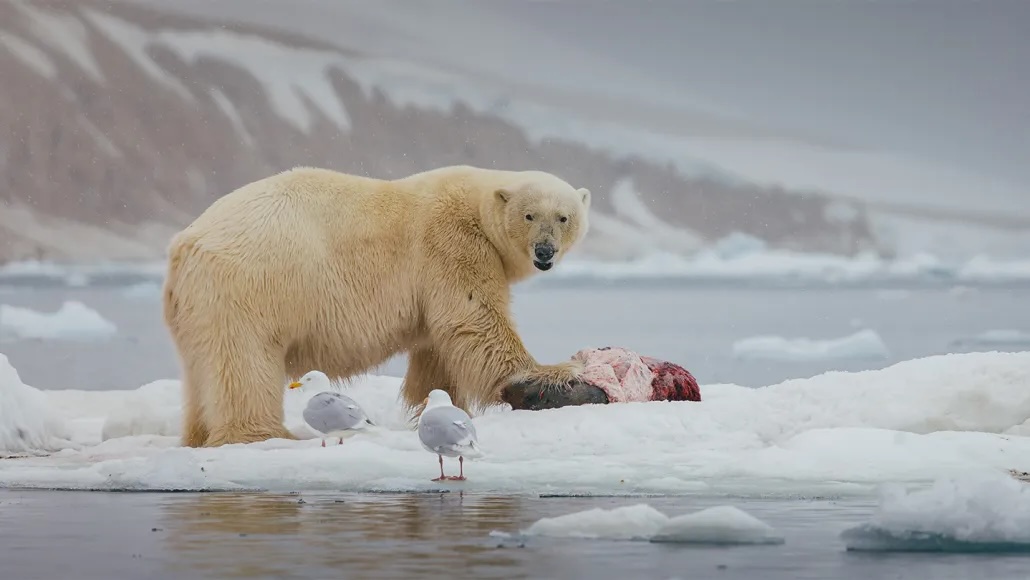
Animals
Polar bears leave thousands of tons of food scraps for other species
The new finding quantifies how much of polar bears' food goes uneaten. As these bears decline, Arctic scavengers risk losing a critical food source.
Come explore with us!

The new finding quantifies how much of polar bears' food goes uneaten. As these bears decline, Arctic scavengers risk losing a critical food source.

The tiny plastic bits give these germs safe havens. That protection seems to increase as the plastic ages and breaks into ever smaller pieces.

But the same thing is not happening throughout the kingdom. For instance, more than half of vertebrate populations are stable or increasing.

After an intense burn in 2018 in California, big cats in the region crossed roads more often. That put them at higher risk of becoming roadkill.

Long, thin bacteria that conduct electricity may be able to help clean up oil spills and reduce emissions of methane, a powerful greenhouse gas.

The global population hit this milestone on November 15, according to an estimate from the United Nations.

Parasitic worms eat blood and make people sick, but they may also help prevent or treat some diseases.

Parasites get a bad rap as disease-causing, unwelcome guests on other organisms. But parasites are also imperiled, and scientists don’t want to lose them.

Now that monkeypox has spread to a dog, researchers fear other species could help the virus become widespread outside of Africa for the first time.

Mosquitoes repeatedly shaken to prevent slumber lagged behind well-rested ones when offered a leg to feed on.